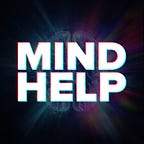What Is Bibliophobia?
Bibliophobia is a specific phobia characterized by an irrational fear of books and reading. This condition, also known as “book phobia,” is rooted in the Greek word “biblio,” meaning books. Individuals with bibliophobia may experience anxiety, discomfort, and intense fear when confronted with books, stories, or the act of reading. It is important to note that bibliophobia can manifest as a fear of certain types of books, such as textbooks, historical novels, or children’s stories, rather than a generalized fear of all books. Additionally, mythophobia, which is the fear of legends, is considered a subtype of bibliophobia.
Case Example
Rita, since the age of 5, was encouraged by her parents to read children’s storybooks. Her parents expected her to read words that exceeded her age-appropriate level, aiming to keep her ahead of her peers. Initially, Rita was captivated by the pictures in the books and followed her parents’ instructions. However, as reading began to consume her playtime, Rita grew increasingly frustrated. She would throw tantrums and cry when left alone with the books. Her mother’s response was to make her spend more time reading whenever she made mistakes. Rita was even prohibited from going out to play. Over time, reading books transformed into a dreadful task for Rita, leading to a repulsion that later evolved into a fear. Reading in class was particularly distressing for Rita, causing her to sweat, breathe heavily, and anticipate reprimand. These feelings persisted into her teenage years, and she continued to experience full-blown panic attacks in class or at the school library. Rita’s panic attacks included symptoms such as chest tightening, palpitations, lightheadedness, and shortness of breath, further affecting her concentration.
Symptoms of Bibliophobia
Individuals with bibliophobia may exhibit both physical and psychological symptoms when confronted with books or the act of reading. Common symptoms of bibliophobia include:
Intense, persistent fear of books, stories, or reading.
Active avoidance of books and reading material.
Excessive worry or anxiety about encountering books or reading.
Panic attacks in the presence of books, resulting in physical symptoms such as shortness of breath, rapid heartbeat, trembling, chest tightness, dizziness, nausea, chills, and more.
Causes of Bibliophobia
The specific causes of bibliophobia are not well-established, but like other specific phobias, it may result from a combination of genetic and environmental factors. Potential contributing factors may include:
Genetic Influences: Inherited personality traits that predispose individuals to phobias.
Dysfunctions in the Brain: Abnormalities in brain regions, particularly the amygdala, which is involved in processing fear.
Traumatic Experiences: Past traumatic experiences related to books, such as bullying or taunting while reading.
Illiteracy: An association between bibliophobia and illiteracy, where a lack of control over reading material leads to aversion and anxiety.
Cultural Influences: Sociocultural variables and superstitions that may impact the development of bibliophobia.
Social Isolation: A lack of emotional and physical support from family members and living in dysfunctional family environments.
Diagnosis of Bibliophobia
While bibliophobia is not a clinically recognized disorder, it can be diagnosed as a specific phobia based on the criteria in the Diagnostic and Statistical Manual of Mental Disorders (DSM-5). To receive a diagnosis, the condition must have persisted for at least six months and caused significant distress and impairment in daily functioning. Mental health professionals, such as psychologists or psychiatrists, typically conduct assessments and gather personal and family history information to diagnose bibliophobia. Clinical assessments, including the Behavioral Approach Test, may also be used to assist in the diagnosis.
Treatments for Bibliophobia
Treatment for bibliophobia usually involves therapeutic interventions, with medication being used in severe cases. Effective treatment methods include:
Cognitive Behavioral Therapy (CBT): CBT helps individuals identify and challenge negative thought patterns and develop coping strategies to manage their fear of books and reading.
Exposure Therapy: This therapy involves gradually and repeatedly exposing the individual to books in a controlled environment to reduce their fear and anxiety.
Hypnotherapy: Hypnotherapy induces a state of deep relaxation, allowing individuals to explore the underlying causes of their phobia.
Mindfulness-Based Stress Reduction (MBSR): MBSR is an evidence-based program that combines mindfulness training and meditation to reduce anxiety, stress, and phobias.
Medication: Medication may be prescribed to alleviate the physical symptoms of anxiety. Antidepressants and anti-anxiety drugs are potential options in severe cases.
It is important to recognize that phobias, including bibliophobia, are genuine disorders and not signs of weakness or immaturity. Treatment can provide individuals with the tools to manage their fear and lead more fulfilling lives
